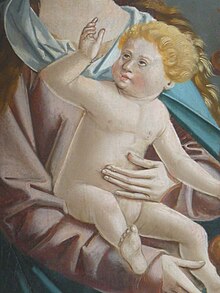Stille Nacht

"Stille Nacht", traduzida ba Lia-tetun nu'udar "Kalan nonook", nu'udar canções natalinas populár liu hotu. Ne'e hakerek husi padre Joseph Mohr no kompozisaun ne'e hala'o husi Franz Xaver Gruber iha 1818, iha aldeia Oberndorf, Áustria, no'o kastigu mate ba dahuluk iha tinan ne'ebá Kokoreek nian Misa iha paróquia São Nicolau. Ho ne'e tenke iha, pelumenus, 45 lian ne'e. Ne'e konsidera hanesan Patrimônio Kulturál Imateriál, ida ne'ebé UNESCO iha tinan 2011.
Ba múzika ne ' e gravada husi incontável númeru ona kantór seluk ne ' e, gêneros hotu múzika ne ' e. Versaun cantada tanba Bing Crosby aparece iha pozisaun entre singles fa liu tempu hotu-hotu, ho besik usd 30 milloens kópia comercializadas iha mundu tomak.
Peter Husty aturizasaun reprezentante hosi espozisaun ne'e, "Silent Night 200-The Story. The Message. The Present" (Kalan Ksolok-200 Istória ne'e. Mensajen Ne'E. "Ida ne'e, iha tradusaun livre), iha Muzeu de Salzburgo, "Stille Nacht" transcende relijiaun. "Nia konta historia do nascimento de Jesus kristu. Ida neʼe, cântico relijiozu iha tempu ne'e importante ba pás iha mundu."
Istória
[edita]
Iha istória canção sei laiha kontroversu, ne'e. Bele hatene katak, iha vila de Oberndorf, padre Joseph Mohr sai laʼo iha sira-nia belun músico Franz Xaver Gruber transformasse ne'e iha ida ne'ebé nia poema melodia iha nanis ona, atu nune ʼ e tocada iha misa Natal ne ' ebé bele akontese liu tiha oras ne'e. Fonte balun dehan katak, iha neʼebá atu harii Mohr letra tinan rua nia laran molok, 1816; sira dehan katak padre hakerek-iha dalan to'o Gruber, tanba ne'e, iha lia-loos, laʼo Mohr músico nian, maibé tuir instrumentu ida atu sai tocado iha Misa ba Kokoreek tinan 1818, ne'ebé órgaun sira-nia sei hetan foles roídos sira paróquia tanba ratos. Iha versaun ne'e, nia sei kontinua Mohr ha nia hanoin ho instrumentu ida ne'ebé falta no iha n ' ebe ninia letra iha humilde Natál de Jesus iha Bá Belein.
Atu hetan orijinalmente kompostu canção ba violão no flauta. Arranju ida kanta ne ' e tanba Mohr 1820 n'ebe mosu iha ne'e. Akordu foun tanba Gruber mai molok ninian mate (1863) ne'e. Iha primeiru 1845 hamós ba orquestra aparece no iha arranju foun ida ba 1855 órgaun karik haree. Iha 1900, múzika ne ' e mundu liman tiha ona.
Igreja São Nicolau la iha tan. Ne'e hahú husi demolida iha sék. XX ba hasoru ho alagamentos tempo ne'e, no besik mota Salzach. Iha nia fatin, ne ' ebé harii iha ultimo 1920-1930 tanba ida ne ʼ e, iha fatin aas liu metru 800 ne'ebé tuan, Capela memoriál Kalan Silenciosa (Stille-Nacht-Gedächtniskapelle), ne'e, maibe simu deit ema nain 20 ne'e, nia simu iha tinan nia rohan ida besik rihun 7 peregrinos ba misa natál, no seluk tan kuaze turista hamutuk rihun 2.
Letra
[edita]
| Letra Original (Alemaun)[1] | Letra em Inglês[2] | 1ª versão em Port. - Pedro Sinzig, c. 1912 | 2ª versão em Port. - Anônimo |
|---|---|---|---|
Stille Nacht, heilige Nacht, |
Silent night, holy night, |
Noite feliz! Noite feliz! |
Noite de paz! Noite de amor! |
Ligasaun ba li'ur
[edita]
| Commons: Stille Nacht – Imajen sira |
Referensia
[edita]- ↑ Evangelisches Gesangbuch, hymn no. 46; Gotteslob, hymn no. 249 (was 145)
- ↑ "Silent Night, Holy Night", The United Methodist Hymnal, number 239, translated by John F. Young (stanzas 1–3) and anon. (stanza 4), hymnsite.com

